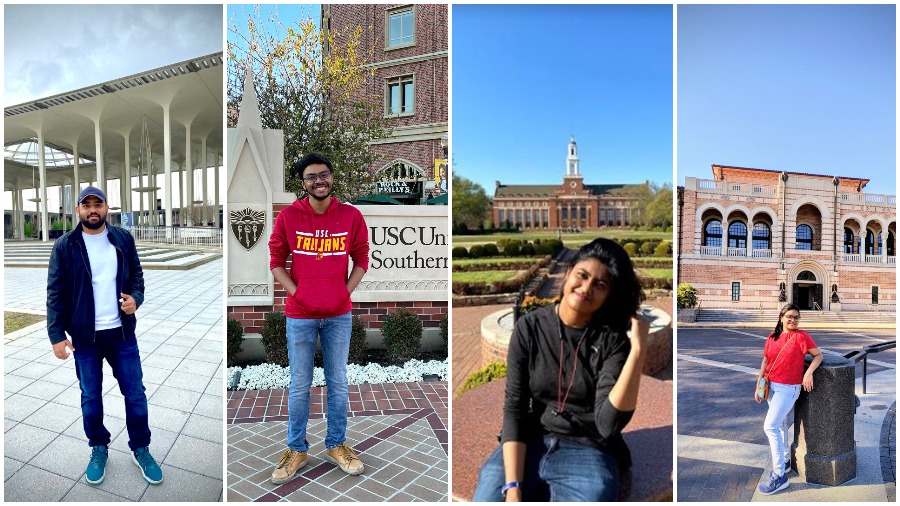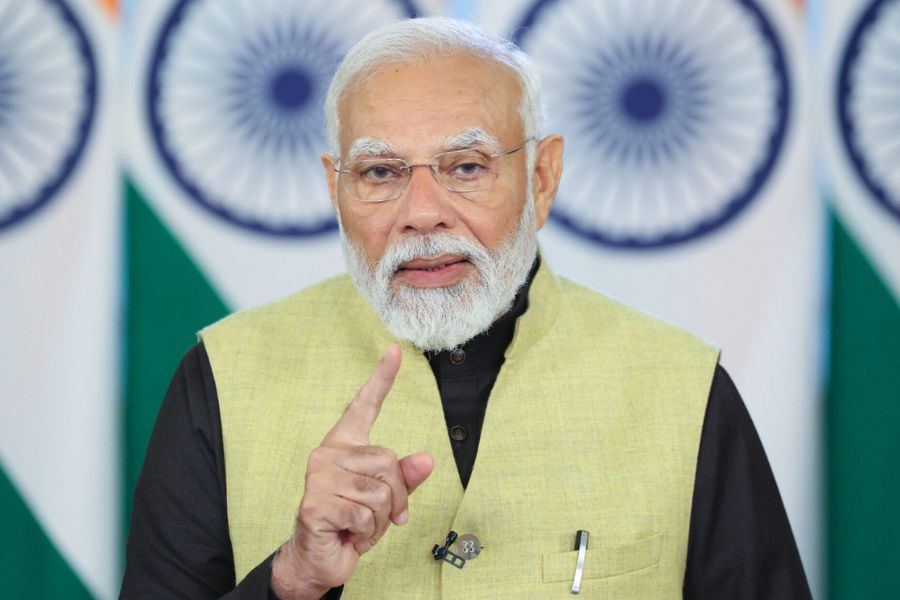Ever since high school, Akash Roy had dreamt of setting foot in the famous Silicon Valley in the US. While he worked through a BTech course in electrical and communication engineering from the Heritage Institute of Technology in Calcutta, the city lad came up with a definitive plan to land in the US in the fall (autumn) of 2020. He knew it was virtually impossible to study in a California college without a full scholarship, so he started preparations early — in December 2019. By March 2020, six of the seven colleges he had applied to offered him full scholarships.
Akash chose the University of South California (USC) — at the heart of Silicon Valley — to pursue a PhD in electrical engineering with specialisation in electrophysics. Unfortunately, the Covid-19 pandemic led to everything going topsy-turvy in the US — including university admission procedures. Many universities were not keen to defer admission but visa offices in India were closed. “I was lucky that USC was very transparent about deferrals from the beginning, and I could defer my admission to January,” he says. Visa offices eventually opened in mid-August and, by the end of September, he was able to secure an appointment.
Akash landed in Los Angeles on January 8. “I had to do a Covid test within two days of arrival and was quarantined for 10 days. Most of the services are online and figuring out who to contact for each problem was difficult,” he says. The norms had become complicated because of minimal face-to-face interaction with admission officials.
Since the university housing was closed, he rented an apartment close by. Now, after getting vaccinated, he’s attending online classes and occasionally visits the lab. “There are extremely strict rules for entering campus. You need a daily QR code generated by an app built by the university. The app gives you a code if you have had the flu vaccine, put in the result of a weekly Covid test and fill up a symptom-related questionnaire,” he says.
“Life has changed for those who want to study abroad in the time of a pandemic,” says Arindam Roy, senior advisor at EdXCare International, a foreign education consulting firm in Calcutta. “Nevertheless, a lot of students from Calcutta are cracking full scholarships in STEM (science, technology, engineering and medicine).” Despite fund cuts and fewer positions, students who plan properly are able to fulfil their American dream, says Roy (see box).
Take Subham Roy. He joined the State University of New York, Albany, to pursue a PhD in string theory under professor Oleg Lunin, a subject he wanted to study since he was an undergraduate in Ramakrishna Mission, Rahara. Says the master’s in physics from Jadavpur University, Calcutta, “Federal funding stopped and some of the professors who were interested in taking me were not able to offer me a PhD position.” Subham applied to four universities and was offered full scholarships by two of them.
Getting a date for a visa interview was another challenge. “Many of my friends were unable to fly to the US just because they could not schedule a visa interview,” he says. Plane tickets too created their own problems. “The fares were high; then there was a sudden cancellation and rerouting, not to mention the risk of getting the coronavirus during the long flight,” he says. Subham landed in the US on January 5.
As did Nikita Kundu, who is pursuing a PhD in experimental condensed matter physics from Oklahoma State University. A master’s in physics from St. Xavier’s University in Calcutta, she applied to 12 US universities. Six offered her a PhD position, four with full funding. “The primary pitfall due to the outbreak was the deferral of my enrolment. Then, most embassies were shut down. There were a lot of sudden circulars and new regulations (some subsequently rescinded), adjourned transportation — there were waves of uncertainties that could have thwarted the dream at any moment,” she says.
Fortunately, everything fell into place. She has taken both doses of the Pfizer vaccine and is now settled in an apartment on campus.
Aritra Roy, a master’s in mathematics from Jadavpur University, too has settled down in an on-campus apartment at North Dakota State University, US. The PhD student of mathematics laments that he could not apply to some of his chosen universities. “Due to the pandemic these universities failed to provide funding,” he says. Out of the five he applied to, he got offers from three. He works as a teaching assistant in the maths department to fund his full scholarship.
Swati Saha arrived in the US in early December 2020 to pursue a PhD in interdisciplinary sciences (with specialisation in bioinformatics) from the University of Louisville, Kentucky, with a full scholarship. She says, “Since I reached early and stayed at my sister’s home, I didn’t have to stay in quarantine, unlike many others.” She has been vaccinated and has moved to an apartment near the campus. “All my classes are online and I don’t have to go to the lab. There are strict rules for social distancing and masking on campus, which students usually obey,” she says.
If you aspire to study in the US, keep the dream alive and don’t lose hope.
Additional reporting by Chandana Chandra
GET GOING
Start early: The pandemic has led to a fund crunch in almost all universities. Apply to the university or professor of your choice long before the deadline. Contact the professor before applying to his or her lab and prepare for an interview well in advance.
Standardised test: Start your preparations early for tests such as GRE, TOEFL or IELTS. Many bright students keep delaying test preparation because it seems boring. For instance, memorising 5,000 GRE words is cumbersome but necessary. If you keep procrastinating, it will become a tough task.
Statement of purpose: Half of the applications get rejected because the statement of purpose (SOP) is not good enough. Do some research, talk to seniors and take professional help to write a good SOP. In addition, you will also need recommendation letters from professors you know well.
Projects: Get your projects done early. Having a research paper is the best option, although not an easy one. Some good projects under your belt will bolster your CV.











